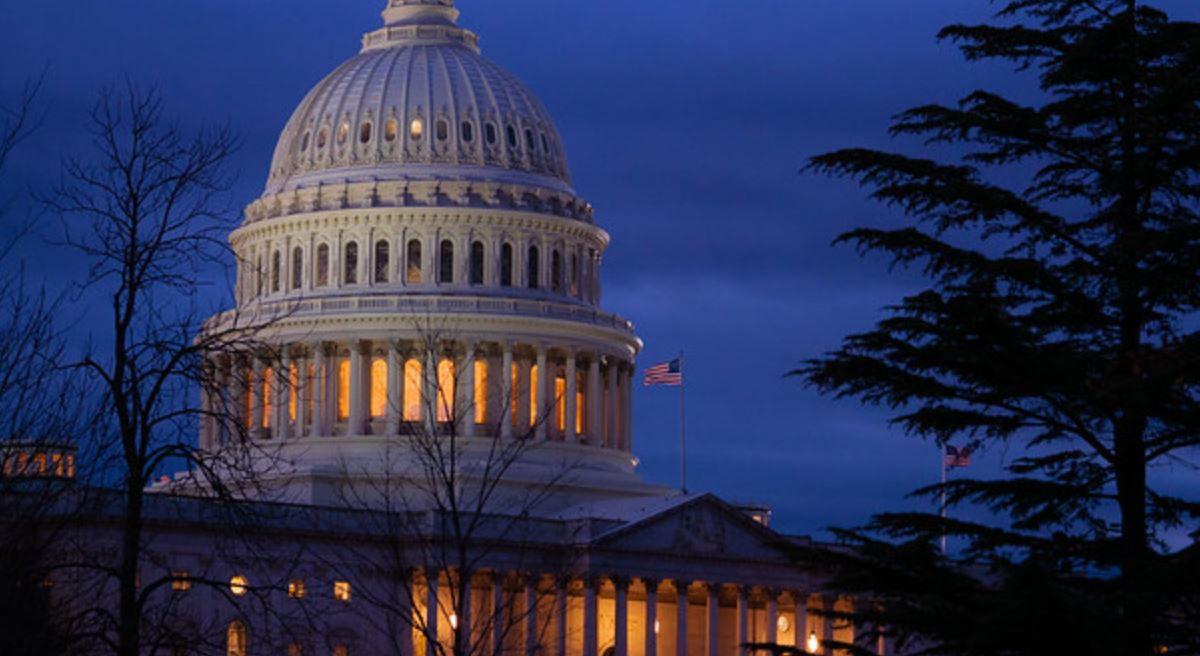
For more than a century, the process of political centralization and state building in the United States has entailed convincing a large portion of the population that the federal government must be the final arbiter of the moral righteousness of every law and policy adopted in every state. The idea began as a novel concept in the nineteenth century when federal policy makers began to use it as a tool of asserting federal control over states. If federal institutions regard a state policy as conforming to federal notions of “rights,” then the policy is allowed to stand. If, not, then the federal government deems the law to be null and void. This negation of state and local policies, of course, is backed with real or threatened coercive force applied by federal institutions. Today, the idea that federal courts can now declare any state law to be “unconstitutional” is accepted without question by the overwhelming majority of Americans.
Moreover, the idea permeates all corners of the political spectrum, so that conservatives and progressives alike can routinely be heard calling for the federal government to step in and overturn local laws by force when those local laws are not to the liking of activists. The Left, of course, has long called for federal intervention in every state and local government right down to the local school board. Through this process, for example, even school prayer at a high school sports game has been turned into a federal issue. Conservatives, meanwhile, demand that the federal government void state and local gun laws where conservatives regard these laws as overly restrictive.
This is even a common notion among self-described libertarians, many of whom insist that it is entirely proper for one government—i.e., the federal government—to impose certain laws on another government—i.e., the state and local governments.
Among advocates of this sort of thing, whether progressive, conservative, or libertarian, it is justified on the grounds that federal intervention must be allowed to “protect rights.” Rights, of course, are in these cases themselves defined by the federal government itself. Moreover, the central government in these cases is to be the sole judge of its own laws and policies, and not subject to any intervention from “outsiders” for purposes of protecting rights, or anything else.
As I’ve noted in the past, this is a form of imperialism and it is certainly nothing new, novel, or unique to Americans. Imperialists of all stripes have long justified their interventions on the grounds that their actions are necessary to enforce the protection of human rights, spread civilization, or otherwise perform some service to humanity. This is deemed necessary because the people in the colonies, however defined, cannot be trusted with self-government, and therefore must submit to the enlightened rule of outsiders who can be trusted with properly protecting rights and civilization.
Indeed, justifying this sort of relationship between the federal government and the state governments in the US is central to the US’s regime ideology. It is reflected in the regime’s written constitution which is regularly invoked to provide a patina of legitimacy to the central state’s claims. This myth of the central state’s legal infallibility, however, is based on purely arbitrary, invented, and fictional distinctions between state, local, and federal governments.
“Democracy” Works for the Federal Government, but Not the State and Local Governments?
Among most Americans, it is assumed that unless the federal government can evaluate, affirm or strike down state and local laws, these state and local institutions will not properly protect rights. Implied in this equation, however, is that the federal government does not require any similar sort of outside oversight itself. Why this is the case is never quite clear, especially since state governments are remarkably similar to the federal government in terms of structure and institutions.
For example, all state governments in the US are republican governments with regular elections, legislatures, courts, and many so-called checks and balances of their own. Most state constitutions contain their own bills of rights, and employ state supreme courts that evaluate state and local laws in light of these legal rights. In other words, each state government contains all the hallmarks of what the elites tell us is “democracy.”
For whatever reason, though, these institutions are deemed to be unreliable in protecting rights and are—in the parlance of US elites—not sufficiently democratic. The “fix,” therefore, is to subject all state laws and policies to a federal veto through the courts or through federal legislation that supersedes state law. Federal intervention, we are told, is necessary as a backstop to prevent abuse by state and local officials.
At the federal level, however, it is presumed that institutions, for whatever reason, do work well enough to protect rights and are sufficiently democratic. That is, although the federal government is virtually identical to state governments in structure and institutional makeup, it does not require some outside backstop to ensure the federal government does not abuse its power. While state institutions fail in their mission, federal elections, legislatures, and courts are assumed to be all sufficient to protect rights. In other words, “democracy” works only at the federal level, and only at the federal level.
Why do federal institutions function to protect rights while state and local institutions are insufficient to do so? This is never explained, and how could it be? The distinction is purely arbitrary and based on nothing more than the mere assertion that only state and local governments—but not the national government— require outside intervention to ensure rights are respected. It would be equally rigorous to contend that federal institutions are fundamentally different from state and local institutions in this way because of magic spells and pixie dust.
The Federal Government Is the Sole Judge of Its Own Laws.
Or put another way, the centralist ideology at work here contends state and local government are not sovereign, but the federal government is fully sovereign. For an illustration of this sovereignty, we need look no further than the fact that virtually no one in the regime has seriously attempted to subject US laws to evaluation by judges at the United Nations or any other international organization. (To do so would at least be consistent with the idea that a government’s law ought to be subject to review by some “higher” level of government.) Not that the idea is never mentioned. For example, some proabortion interest groups have claimed that states which outlaw abortion do so in violation of international law. Arguably, then, if the federal government were to affirm such laws, the US ought to be subject to outside intervention in the name of forcing compliance with international human rights protections.
Those who suggest such a thing will meet with little success in the US, of course. Most Americans—even among the elites—insist that “outsiders” ought not be judges of another jurisdiction’s laws, and that only American institutions get to decide what laws shall be enforced within US borders. French, British, or Italian judges must not be allowed any say in what laws are enforced or adopted within the United States. But note this exact same logic is not applied to the supposedly “sovereign” member states in the United States. We’re to believe it would be outrageous for people living thousands of miles away to rule on US laws, it is nonetheless deemed perfectly acceptable for federal politicians or judges in Washington, DC, to themselves dictate what laws or policies are permissible thousands of miles away in Idaho or Alaska. In other words, the federal government—and the federal government alone—is the sole judge of its own laws and policies.
Again, the distinction here is purely arbitrary, and relies on convenient fictions such as claims that a farmer in Idaho and a lawyer at the Supreme Court are “all Americans” and thus the former must submit to the political power of the latter. These pretensions toward American solidarity only apply in one direction, of course, and are never employed to actually limit federal power. Such ideas endure, however, because they conform to the ideological whims of those who successfully mold and propagate public opinion.





